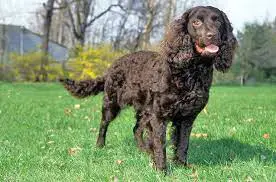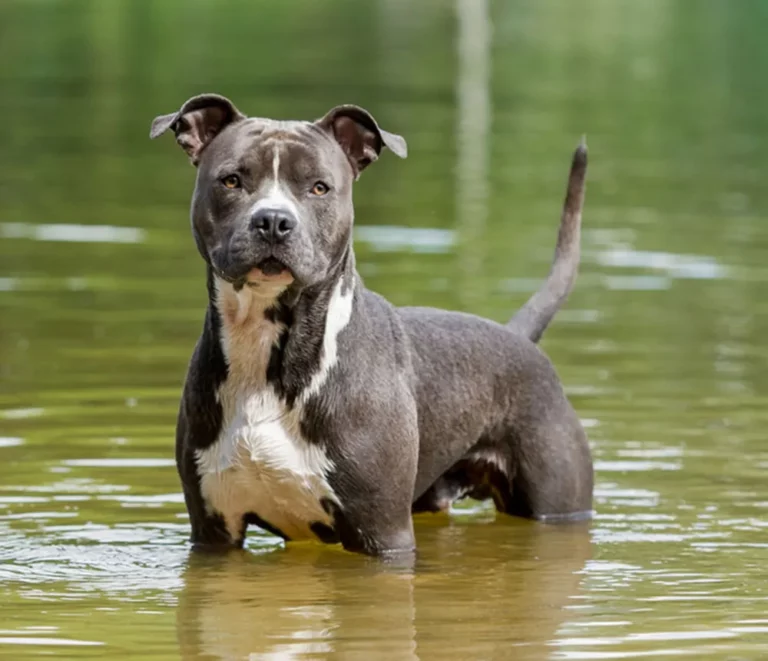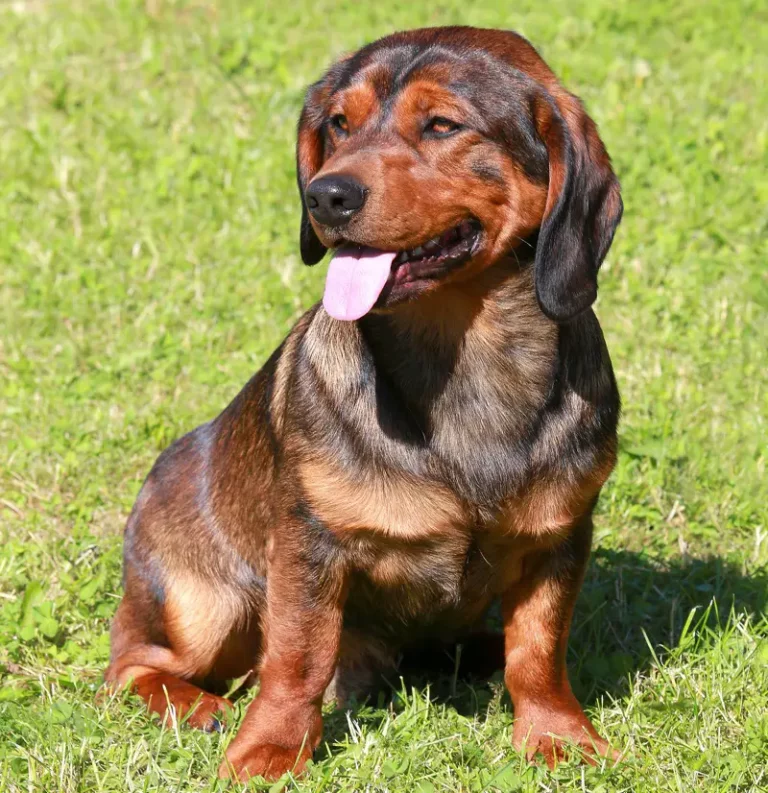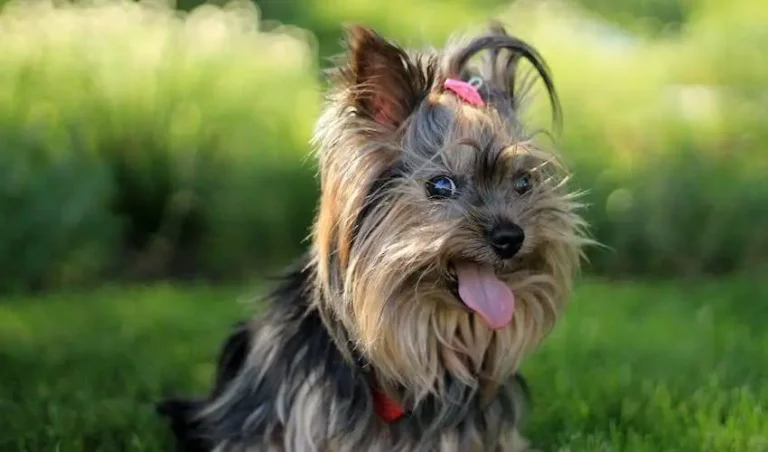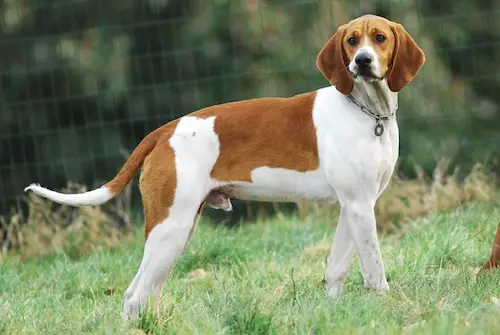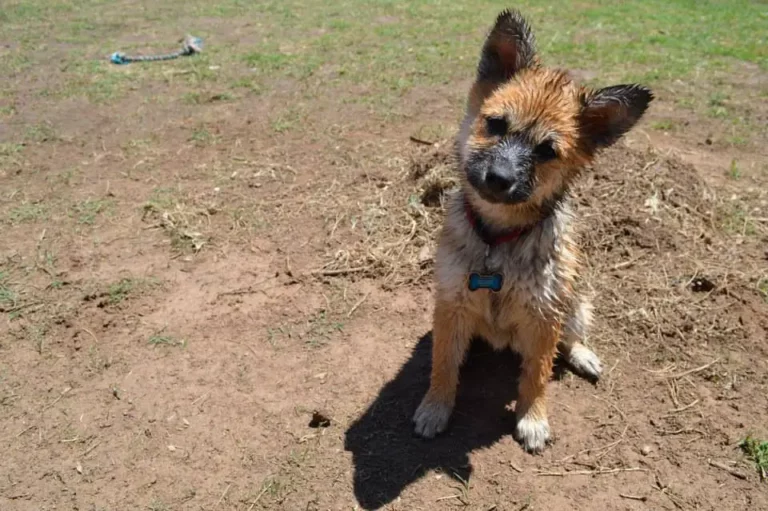Affenpinscher Dog Breed – Information & Pictures
From its cute, monkey-like features to its fuzzy coat and charming personality, the Affenpinscher is an appealing breed of dog that’s become increasingly popular.
Learn all about the history of this mischievous pup, as well their unique physical traits, nutrition needs, and grooming requirements.
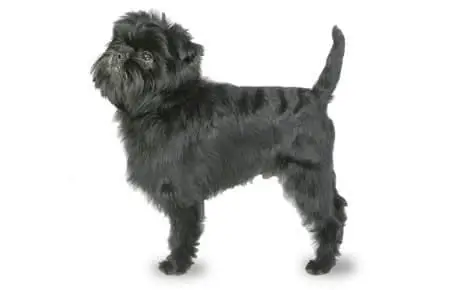
Overview of the Affenpinscher Dog Breed
| UTILISATION | House and Companion Dog |
| FCI-CLASSIFICATION | Pinscher and Schnauzer type |
| BREED GROUP | Toy |
| COUNTRY OF ORIGIN | Germany |
| HEIGHT | 9-11.5 inches/22-30 centimetres at the shoulders |
| WEIGHT | 7-10 pounds/3-4.5 kilograms |
| LIFE EXPECTANCY | 12-15 years |
| TEMPERAMENT | Friendly, playful |
| INTELLIGENCE | High |
| SHEDDING AMOUNT | Occasional |
| DROOL AMOUNT | Low |
| EXERCISE AMOUNT | Medium |
| ENERGY LEVEL | Active |
| COAT LENGTH/TEXTURE | Wiry |
| COLORS | Black, red, gray, fawn |
| SUMMARY | Great for apartment living. Affectionate. Good with seniors, other dogs, families. Easy to groom. Loyal. Hypoallergenic. Can bark a lot. |
The Affenpinscher is a small breed of dog that is believed to have originated in Germany during the 17th century. These dogs were first used as ratters, but they have since become beloved family companions due to their lovable and mischievous personalities.
They are known for their compact size (usually between 7 to 11 inches tall at the shoulder) and thick, wiry coats that come in various colors, including black, gray, silver, red, and beige.
History of the Affenpinscher
The Affenpinscher is thought to have originated in Germany during the 17th century, when it was a popular companion and rodent hunter.
It is believed to have descended from various European breeds, such as the Brussels Griffon and German Pinscher. Because of its diminutive size, this breed was sometimes called Mustachetor or Monkey Terrier.
Today, the Affenpinscher is still a popular family pet that can do well in obedience, agility, tracking, and other canine sports.
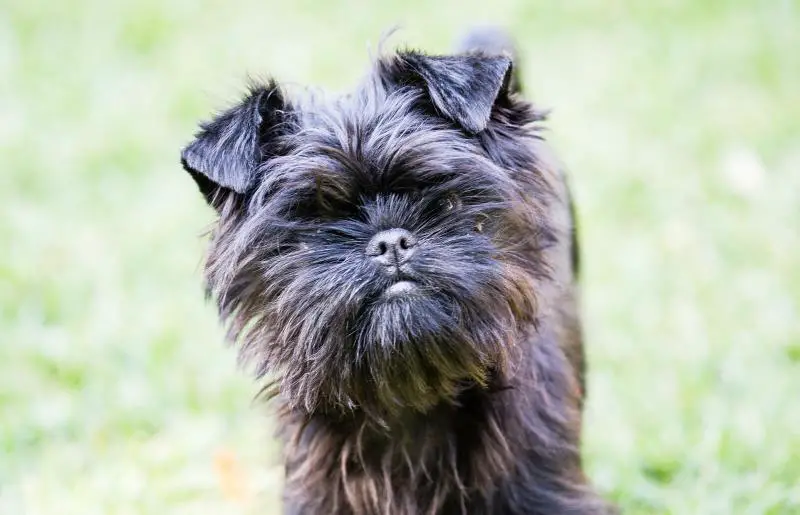
Physical Characteristics and Temperament of the Affenpinscher
The Affenpinscher is a small breed with a weigh range of 7-10 pounds and an average height of 9-11 inches from ground to shoulder.
It has a unique physical appearance, featuring protruding eyes, upright ears, and a distinctively long, coarse coat that often ranges in color from black to gray.
Though they are usually friendly towards people, they tend to be independent and energetic dogs with strong watchdog qualities. Known for their intelligence, playfulness, and loyalty, the Affenpinscher makes a great family pet if given proper care and training.
Nutrition and Care Requirements for an Affenpinscher Dog
It’s important to maintain a healthy diet and proper care routine when it comes to your new Affenpinscher. A high-quality, grain-free dry food with added glucosamine and chondroitin is ideal for their unique nutritional needs.
Regular grooming is also necessary for these dogs, as their wire coats can easily become matted and tangled without proper maintenance. Additionally, regular exercise helps keep an Affenpinscher in good mental and physical health.
Grooming Tips for an Affenpinscher
Before you attempt to groom an Affenpinscher, it’s a good idea to familiarize yourself with the grooming routine and needs that are specific to their breed.
Brushing their coats two or three times a week is recommended to keep the coats clean and free of any dirt or debris. Be sure to also use a special comb that can help remove mats or tangles in the fur.
Additionally, trimming their nails regularly prevents them from causing any discomfort due to long nail beds.
Frequently Asked Questions
What breeds make up an Affenpinscher?
The Affenpinscher is believed to have originated from various small European terrier breeds and was developed in Germany during the 1600s. This dog breed consists of a mix of the Brussels Griffon, Miniature Schnauzer, Miniature Pinscher, Silky Terrier, and several other small terrier breeds.
Are Affenpinschers good dogs?
Affenpinschers are intelligent, inquisitive, and energetic. They make good family pets with proper training but can be difficult to housetrain. They tend to bond well with their owners and get along with other dogs and children if socialized appropriately.
What is the difference between an Affenpinscher and a Brussels Griffon?
The Affenpinscher is a small, terrier-like toy dog that originated in Germany. They are also known as “monkey dogs.” The Affenpinscher has a rough, wiry coat and is good at keeping vermin away.
The Brussels Griffon is another small Breed of dog originating in Belgium. It has a soft coat and is sociable with people and other animals. Its muzzle is longer than that of the Affenpinscher, giving it a less fox-like look.
The two breeds’ temperaments are quite different too; while the Griffon can be independent and more aloof, the Affenpinscher is playful, outgoing, and eager to please.
Do Affenpinschers like other dogs?
Despite their small size, Affenpinschers are bold and confident in their attitude towards other animals. They tend to get along well with other dogs of all sizes, though they do have a high prey drive and may go after smaller pets such as cats or hamsters. With proper socialization, Affenpinschers can learn to live peacefully together with other pets.
Are Affenpinscher rare?
Affenpinschers are a rare breed of dog, but they have been gaining in popularity as more people become familiar with their distinct look and lovable personalities. They are low-shedding and can make great family pets, though they can be a bit independent at times due to their stubborn nature.
Are Affenpinschers healthy?
Affenpinschers are generally healthy and hearty dogs. They are a small breed, so they don’t require a lot of exercise or a large area for them to live in.
Furthermore, with regular vet check-ups and proper dieting, most do not suffer from long-term health issues.
How smart is an Affenpinscher?
Affenpinschers are highly intelligent and loyal dogs, known for their resourcefulness and alertness. They learn very quickly, and bond with their families quickly as well.
They excel at obedience training and can be taught new tricks easily. They may also even surprise you with their ability to solve puzzles and tasks without prompting, making them excellent (and furry) companions!

